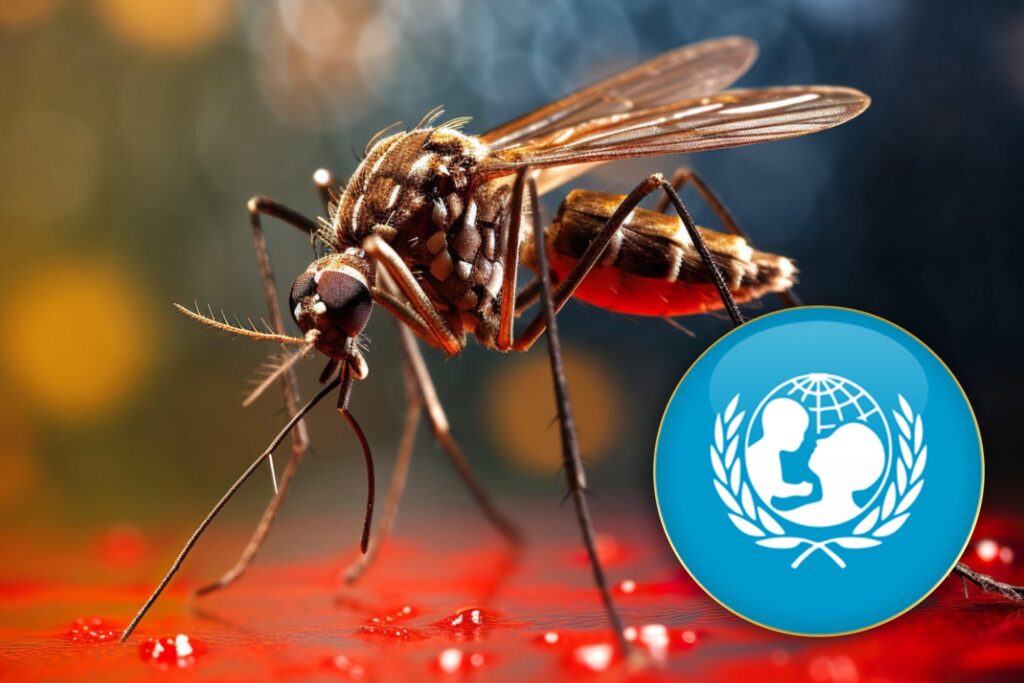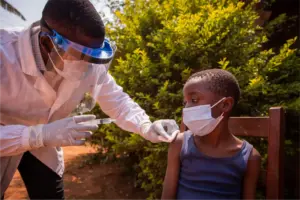
Malaria continues to be one of the deadliest diseases affecting children worldwide. Tragically, over 1,200 children die every day from this preventable and treatable disease. Caused by parasites transmitted through the bite of infected female Anopheles mosquitoes, malaria disproportionately impacts vulnerable communities, particularly children under five.
Beyond the loss of life, the economic consequences are staggering, with malaria costing families and communities an estimated $12 billion annually in lost productivity. Parents are often forced to miss work to care for their children or themselves, further deepening financial strain.
The global fight against malaria has faced significant setbacks in recent years. Since 2015, malaria cases have been steadily increasing, with the COVID-19 pandemic exacerbating the crisis. Contributing factors include declining investments in malaria prevention programs, overwhelmed healthcare systems, conflict-driven displacement, and the spread of invasive mosquito species. Climate change is also creating favorable breeding conditions for mosquitoes, threatening to worsen the situation.
However, there is hope. Advances such as new malaria vaccines, combined with proven preventive measures and treatments, offer a clear path toward eliminating malaria. UNICEF, as a global leader in child health, is at the forefront of these efforts, working tirelessly to reduce the burden of malaria and create a brighter future for children around the world.
A Comprehensive Approach to Combating Malaria UNICEF’s strategy to fight malaria focuses on five critical areas, bringing together innovation, prevention, treatment, and community engagement to save lives:
Revolutionary Malaria Vaccines
UNICEF is leading efforts to roll out life-saving malaria vaccines in vulnerable regions. Vaccines like RTS,S/AS01 and R21/Matrix-M have shown remarkable efficacy, reducing malaria cases by up to 75% when administered seasonally in high-transmission areas.
Pilot programs in Ghana, Kenya, and Malawi have already reached millions of children, reducing overall child mortality rates by 13%. These vaccines represent a groundbreaking step in protecting children and improving survival rates in affected regions.
Providing Mosquito Bed Nets
Insecticide-treated mosquito nets remain one of the most effective ways to prevent malaria transmission. By creating a barrier against mosquito bites, these nets save lives, especially among pregnant women, young children, and families living in high-risk areas.
UNICEF has distributed over 500 million mosquito nets in more than 50 countries, with 13 million provided in 2023 alone, ensuring protection for those most at risk.
Ensuring Early Diagnosis and Treatment
Access to early diagnosis and effective treatment is vital for child survival, especially in remote areas where healthcare access is limited. UNICEF collaborates with governments to supply rapid diagnostic tests and antimalarial medications through integrated healthcare programs. By addressing malaria alongside other common childhood illnesses like pneumonia and diarrhea, UNICEF is strengthening healthcare systems and improving survival rates in even the most underserved communities.
Raising Community Awareness
Education and awareness are key to preventing malaria. UNICEF works with local leaders, health workers, and trusted community networks to promote malaria prevention and early treatment. Through grassroots campaigns, UNICEF spreads awareness about symptoms, encourages timely medical intervention, and combats misinformation, empowering families with the knowledge they need to protect themselves and their children.
Partnerships for Greater Impact
Collaboration is essential in the fight against malaria. UNICEF partners with governments, organizations, and local stakeholders to share resources, expertise, and innovative solutions like scaling up malaria vaccine programs. By working together, these partnerships maximize impact, helping reduce malaria cases and improve health outcomes for children globally.
Toward a Malaria-Free World
UNICEF’s multi-faceted approach aims to not only combat malaria but also strengthen healthcare systems and empower communities to take control of their health. A malaria-free world is within reach, and with continued innovation, investment, and collaboration, we can ensure every child has the opportunity to grow, thrive, and build a better future.
Malaria may be a formidable challenge, but UNICEF’s relentless efforts remind us that progress is possible one step, one vaccine, and one community at a time.








